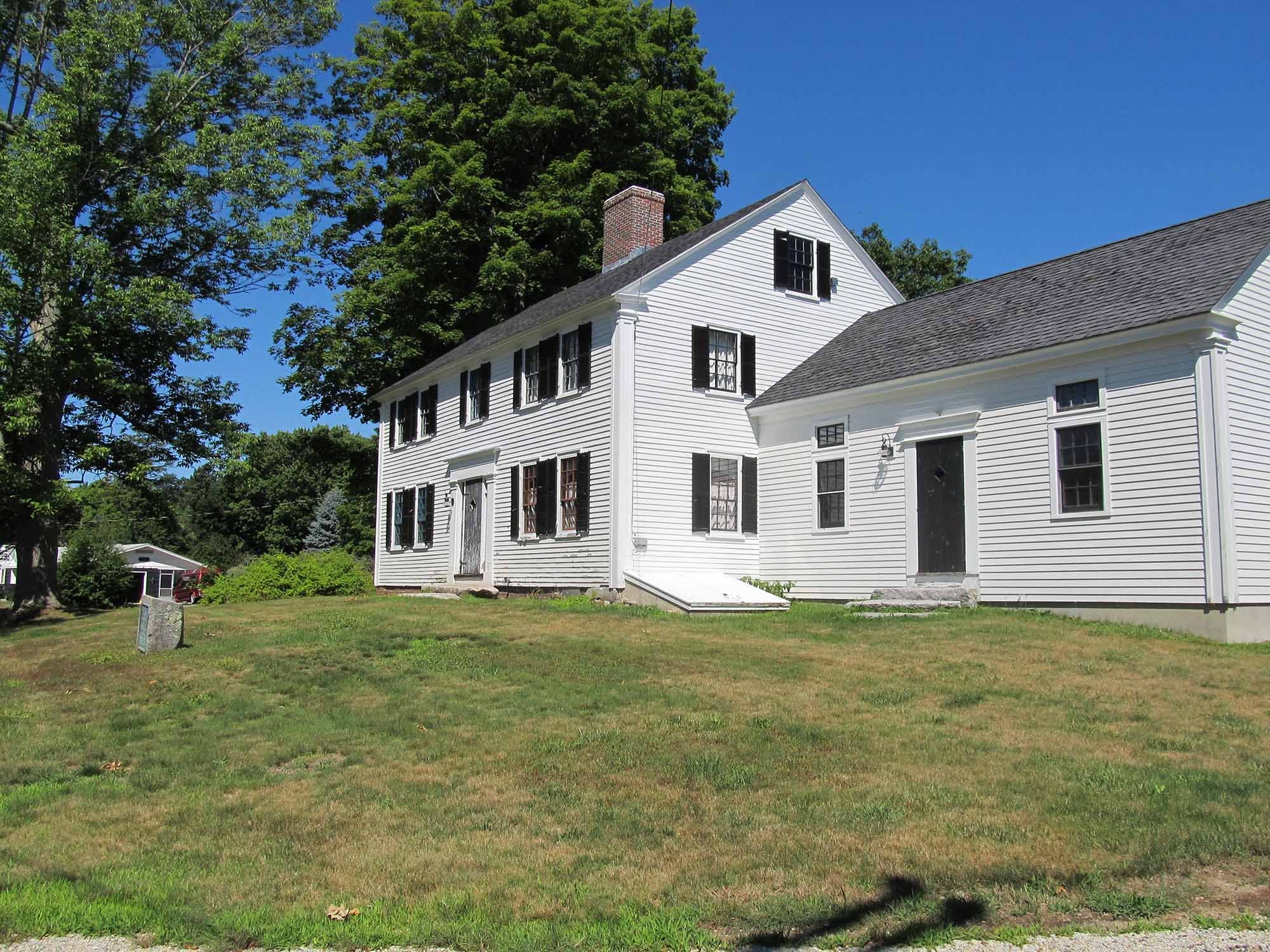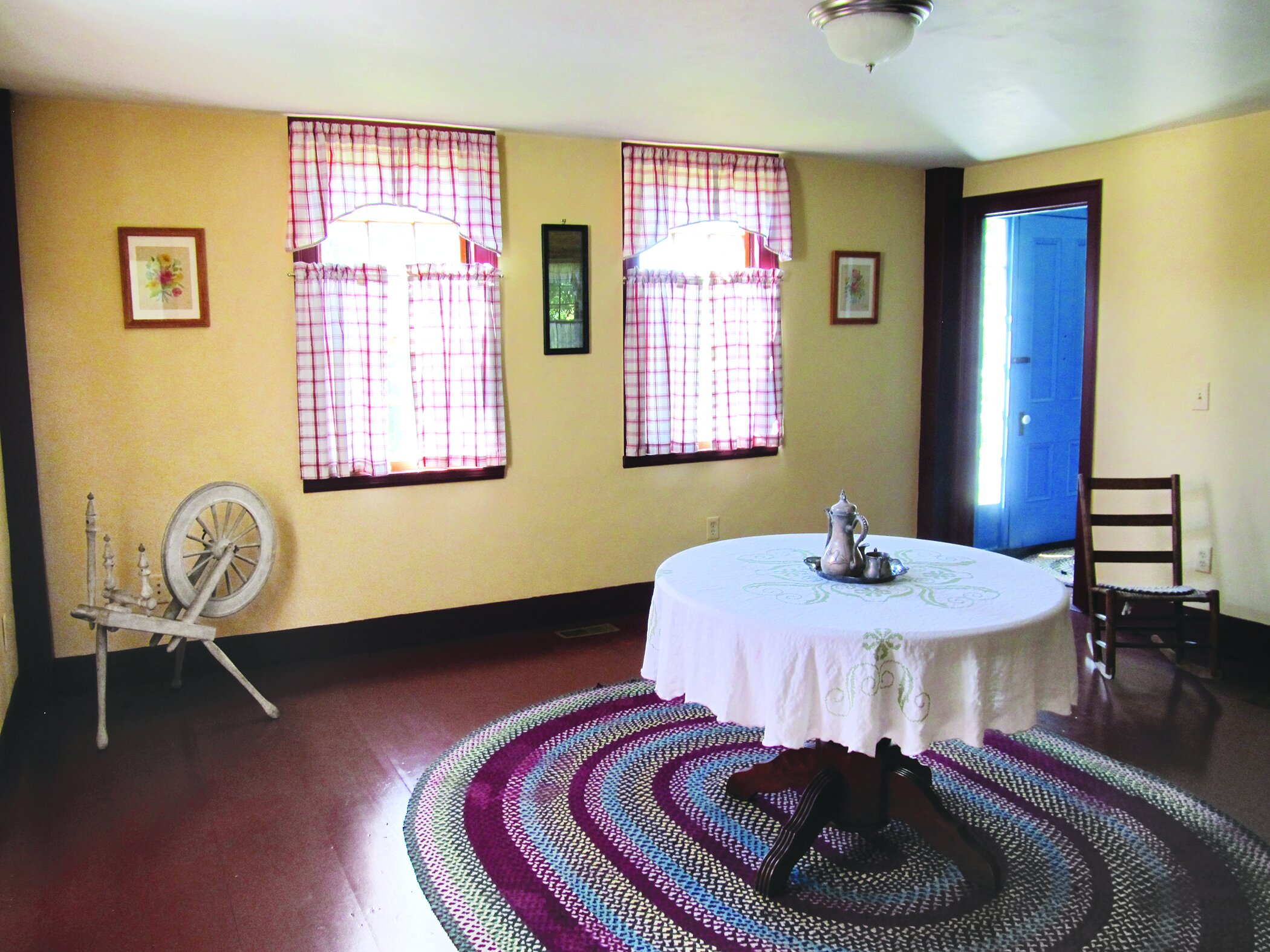
FOGG HOUSE
Discover the Fogg Homestead
Home of one of Eliot’s Leading Families
Located on the grounds of the William Fogg Library
Corner of Old Road & State Road, Eliot, ME
FOGG FAMILY HISTORY
William Fogg
On March 27, 1819, William Fogg began “hauling timber, boards and bricks” to build his Colonial-style homestead. On June 3, 1821, his journal entry read, “This week, I have finished the front entry of my house.”
Thirteen days later, he notes, “A clear and pleasant evening...At 8 o’clock, I was married by Reverend Samuel Chandler to Betsy Deed Hill at her father’s house...Thus the alliance is formed which will continue through the future rounds of life.”
The Fogg family had been in Eliot since 1680, making them among the town’s earliest settlers. William Fogg was born in 1790. As an adult, he would become a prominent local historian and genealogist. Officially, he worked as Eliot’s Town Clerk and first postmaster. William and Betsy would go on to have several children, all born in this house. One of their sons, John S. H. Fogg, would become a doctor, and the most famous of the Fogg children.
Dr. John S. H. Fogg
Born in 1826, John Samuel Hill Fogg was a man of many interests and well known as a genealogist and expert in Colonial history. He attended Bowdoin College in Brunswick, Maine beginning in 1842. Following his graduation in 1846, he studied at Harvard Medical School and established his practice in South Boston in 1850. John was a general practitioner until 1875 when he was stricken with paralysis and became wheelchair-bound. For the remainder of his life, John and his second wife, Mary, would devote their time to collecting autographs and books. Upon his death in 1893, he gave his family’s land for the town’s library and provided its endowment. He also bequeathed his family homestead to the library, as well as his beloved book and artifact collections, thus becoming one of Eliot’s greatest benefactors.
A Treasure Nearly Lost
On October 8, 2000, in the wee hours of the morning, a fire broke out at the Fogg Homestead (which was vacant at the time, the last tenant having just left). Smoke damaged every room and the ell was completely destroyed.
Nonetheless, supporters of the library were determined to save the Fogg Homestead. After a consultation with an experienced restorer showed that this was physically possible, the work began. In time, the home was cleaned, restored, the Fogg Collection and artifacts readied for display, and a new ell built.
In 1910, Louise Foye, the current librarian, spoke at the Fogg Homestead during a tour of historic Eliot locations. Her closing remarks noted that “the good deeds of men live after them.” This house, this library, and the Worster Wing prove her words to be true. Without the generosity of the Fogg Family and the dedication of people like Juliette Worster, our town would be deprived of one of its greatest cultural institutions.








THE FOGG COLLECTION
The Fogg Collection contains about 1000 volumes. The books cover a variety of topics, including New England history, the Revolutionary War, the Civil War, foreign countries, genealogies, collected papers, state historical collections, state histories, and town histories.
Items of Interest
The Fogg Book & Artifact Collection
Dr. Fogg’s 19th Century Medical Tools
Pedal Organ
Framed minutes from the Eliot Library Association, written by Sarah Farmer, founder of Green Acre Bahai School, businesswoman, leader of first world Peace movement.
Mrs. Fogg’s Wedding Slippers
Crank butter churn, bed warmer, ice box
Model of the clipper ship Nightingale, built in Eliot, which ferried renowned Swedish opera singer Jenny Lind (The “Swedish Nightingale) to the U.S.
Please join us for these special events at the Fogg Homestead!

